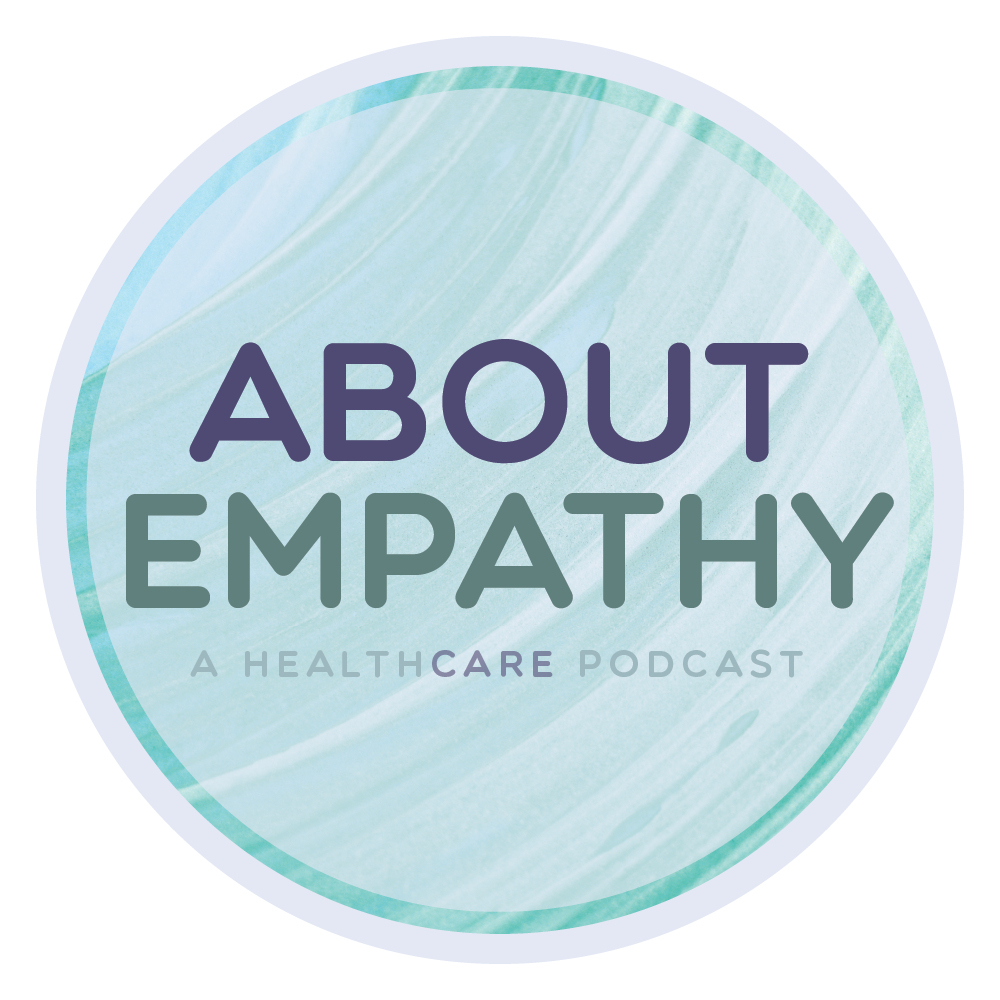Andrea Warnick is a registered psychotherapist and educator on the topic in children. Recognizing that grief looks different in children and that it’s important for the healthy development of a child, Andrea puts an amazing amount of empathy and compassion at the forefront of her work with children and their families. The hosts Dori, Irene and Giovanna highlight the lessons of honesty and the use of language in their debrief.
Episode 5: Approaching Empathy on a Systems Level
What can be done to encourage and foster empathic interactions in the health care system? Dr. Lawrence Loh is the associate medical officer at Peel Public Health. Dr. Loh shares how advocating for system wide change can help create space for empathy. He describes empathy in public health as learning the stories behind the data to protect, promote and optimize the health of a diverse community.
Episode 4: Getting Personal
Episode 2: Medical Assistance In Dying - Part 1 Physician's Experience
Doctors Amy Nolen and Debbie Selby share their experience as providers of MAID (Medical Assistance in Dying). In 2016, Canada passed a law that decriminalizes medically assisted deaths despite controversy among the health care community and Canadian population. The doctors discuss the difficulties in navigating the patients requests and legalities. Drs Amy and Debbie describe how MAID deaths can look and feel different for family and friends.
This is Part 1 of 2 episodes on Medical Assistance in Dying. Part 2 will feature an interview from a patient.
Episode 8: Finding Meaning and Preserving Dignity
Emotional or existential distress is not as easily noticed in patients with serious illness. Dr. Jennifer Moore is a palliative medicine consultant, specializing in dignity therapy. Claire Suarez is a physician’s assistant working in in-patient oncology and is trained in meaning centered therapy.
Irene, Dori and Giovanna reference Harvey Chochinov’s work in dignity therapy and how it uses questions to help discover meaning in patients lives. Asking:
“What has meaning for you?”
“What is the most meaningful for you?”
“What had meaning before your illness?”
“How has that changed?”
“How has that impacted you?”
“What keeps you going?”
LInk to Dignity Therapy: http://www.dignityincare.ca/en/toolkit.html
It is discussed how imparting meaning is not helpful for the patient but we can ask questions and actively listen. This exploration needs to be a journey of self-awareness. Patients can feel stuck in a situation, and showing kindness can help their experience. Patients may shy away from talking about meaning, but it can be helpful to explore. It doesn’t need to be an hour-long conversation; it can be many short conversations.
The hosts end the season by talking about how the psychological condition can impact physical condition so treating patient, as a whole is important. Helping treat the priority of conditions directed by the patient can establish a therapeutic relationship of trust. Ask questions that go beyond the physical state.
Episode 7: Finding Balance in Dual Roles
When faced with serious illness, patients and caregivers take on new roles. Those who work in health care are in a unique position when becoming a caregiver for a loved one. Melodie cared for her parents in their final days. Her health care training as a nurse helped her to receive information from the doctors and pass it on to her family, but Melodie found it very emotionally difficult. Only dying a few months apart, Melodie felt a tremendous sense of emptiness. Her siblings kept close communication to help each other during the grieving period and Melodie allowed herself to rest. Looking back, Melodie really appreciated the health care providers shared encouragement and asked about their wellbeing.
Dori, Irene and Giovanna talk about the importance of checking in with the patient’s caregivers. The importance of finding balance to include both the patient and caregiver in conversation is discussed. The doctors are reminded that patients should give consent about what is shared with caregivers, even in situations where there is a language barrier. Melodie’s story brought up many personal feelings for the hosts caring for their own families – both the pressures and the privilege of having a medical education.
Episode 4: Palliative Care and Compassion Fatigue
Dr Daphna Grossman is a palliative care physician at North York General Hospital in Toronto ON. Describing her journey to palliative care, Daphna speaks about the role of mentorship. Her care is rooted in kindness and compassion to alleviate any possible suffering. Daphna believes the impact on health care providers is two sided: enriching or exhaustive. In order to provide the best possible care, Daphna describes the practices that keep her centred and mitigate stress. Daphna wants to spread the message that palliative care is about helping with suffering along the journey with life-limiting illness - not just end-of-life.
The doctors discuss how to recognize compassion fatigue and burnout. Giovanna, Irene, and Dori, share their personal strategies for emotional self-care. The episode concludes with a round table about the benefits of the mentoring relationship.


